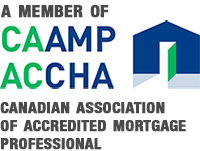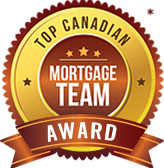


allThe best rate we could find was 3.09% until we met with Jesse and he was able to get us a 5 year fixed rate for 2.84%. This mortgage package also allowed us to pay up to 20% (of the principle) in a lump sum every year without having any penalties. Thank you very much Jesse!!
JESSE BRUN
Mortgage IntelligenceLicense #10428
Mortgage Broker (NB)
Mortgage Agent Level 2 (ON)

Home Equity Line of Credits Bad Credit New Brunswick
If you own a home in New Brunswick, you may have heard about Home Equity Line of Credits. Home Equity Line of Credits are a type of loan that allows homeowners to borrow money by using the equity in their home as collateral. Home Equity Line of Credits are typically used for large expenses, such as home improvements or debt consolidation. However, if you have bad credit, you may be wondering if you can still qualify for a Home Equity Line of Credit. In this article, we will discuss Home Equity Line of Credits with bad credit in New Brunswick.
What is a Home Equity Line of Credit?
Before we dive into the specifics of Home Equity Line of Credits for bad credit, let's first define what a Home Equity Line of Credit is. A Home Equity Line of Credit is a type of loan that allows homeowners to borrow money using the equity in their home as collateral. Equity is the difference between the value of your home and the outstanding balance on your mortgage. For example, if your home is worth $300,000 and you still owe $200,000 on your mortgage, you have $100,000 in equity.
Home Equity Line of Credits can be a great option for homeowners who need access to cash. The amount you can borrow with a Home Equity Line of Credit is typically based on the amount of equity you have in your home. However, there are some factors that can affect your eligibility for a Home Equity Line of Credit, such as your credit score and debt-to-income ratio.
What is Bad Credit?
Credit scores range from 300 to 900 in Canada, and a score of 650 or higher is considered good. However, if you have a credit score below 650, you may have trouble qualifying for certain types of loans, including Home Equity Line of Credits. This is because lenders view borrowers with low credit scores as being high-risk.
Having bad credit can be caused by a variety of factors, such as missed or late payments, defaults, bankruptcy, or high credit card balances. If you have bad credit, it's important to take steps to improve your credit score before applying for a Home Equity Line of Credit.
Home Equity Line of Credits with Bad Credit
While having bad credit can make it more difficult to qualify for a Home Equity Line of Credit, it's not impossible. Some lenders specialize in providing Home Equity Line of Credits to borrowers with bad credit. These lenders understand that not everyone has perfect credit and may be willing to work with you to find a solution.
Alternatives to Home Equity Line of Credits
If you have bad credit and are having trouble qualifying for a Home Equity Line of Credit, there are other options available to you. One option is to work on improving your credit score before applying for a loan. This can include paying off outstanding debts, making all of your payments on time, and keeping your credit card balances low.
Another option is to consider a personal loan. Personal loans are unsecured loans, which means they don't require collateral. While personal loans may come with higher interest rates than Home Equity Line of Credits, they can be a good option if you have bad credit.
Finally, if you're a homeowner with bad credit, you may want to consider a secured credit card. Secured credit cards require a cash deposit that acts as collateral, which means they are easier to qualify for than traditional credit cards. Using a secured credit card responsibly can help you improve your credit score over time.
In addition to using Home Equity Line of Credits to pay for large expenses or consolidate debt, they can also be used to make home improvements. Homeowners in New Brunswick can use the equity in their homes to fund renovations and upgrades that can increase the value of their property.
Some common home improvements that homeowners use Home Equity Line of Credits for include kitchen and bathroom remodels, adding a new room or space, replacing roofing or siding, upgrading HVAC systems, or installing new flooring. These improvements can not only increase the value of the home but also improve the homeowner's quality of life.
When considering a Home Equity Line of Credit for home improvements, it's important to keep in mind that the loan amount should not exceed the projected increase in the value of the home. This will help ensure that the investment is worth it and that the homeowner can recoup the costs when they eventually sell the home.
Our mortgage office can help homeowners in New Brunswick navigate the process of obtaining a Home Equity Line of Credit for home improvements. We can assess the value of the home and provide guidance on what improvements may be the best investment for the homeowner's specific situation. We can also help with the application process and provide options for repayment terms that work for the homeowner's budget.
It's important to note that while Home Equity Line of Credits can be a useful financial tool, they do come with risks. If a homeowner defaults on the loan, they may be at risk of losing their home. It's crucial to carefully consider the decision to take out a Home Equity Line of Credit and ensure that the repayment plan is manageable.
At our mortgage firm, we take the time to discuss the risks and benefits of Home Equity Line of Credits with our clients to help them make informed decisions. We strive to provide personalized service and support throughout the loan process to ensure that our clients are comfortable and confident with their financial decisions.
In conclusion, Home Equity Line of Credits can be a valuable tool for homeowners in New Brunswick who need to finance large expenses or make home improvements. They offer competitive interest rates and flexible repayment terms, making them a popular choice for many homeowners. Our mortgage office can help homeowners navigate the process of obtaining a Home Equity Line of Credit and provide guidance on how to use the funds responsibly. Contact us today to learn more about how a Home Equity Line of Credit can benefit you.
Top of Form
Bottom of Form
How Do You Apply for a Home Equity Line of Credit?
If you're interested in taking out a Home Equity Line of Credit in New Brunswick, the first step is to contact our mortgage office at (888)878-4660 or fill out the short form on the top left-hand side of our website. We'll work with you to determine whether a Home Equity Line of Credit is right for your needs and help you through the application process.
Below is a list of words that are associated with getting a home mortgage loan. We are providing you the list along with their definitions to help your mortgage journey:
Lien: a legal claim against a property used as collateral for a debt.
Homeowner's insurance: insurance that protects against damage to a home or other property, typically required by lenders as a condition of a mortgage loan.
Refinance: the process of replacing an existing mortgage with a new one, typically to obtain a lower interest rate or more favorable terms.
Title search: a process in which a title company reviews public records to ensure that there are no outstanding liens or other claims against a property.
Home equity loan: a type of loan where the borrower borrows against the equity in their home.
Home equity line of credit (HELOC): a line of credit that allows the borrower to borrow against the equity in their home.
Mortgage insurance: insurance that protects the lender in case the borrower defaults on the loan.
Fixed-rate mortgage: a type of mortgage where the interest rate remains the same for the entire term of the loan.
Adjustable-rate mortgage (ARM): a type of mortgage where the interest rate can change over time, typically after an initial fixed-rate period.
Debt-to-income ratio: a comparison of a borrower's monthly debt payments to their monthly income, used to determine their creditworthiness.
Title: the legal right to own and use a property.
Mortgage broker: a professional who helps borrowers find and obtain mortgage loans from various lenders.
Reverse mortgage: a type of mortgage where the borrower receives payments from the lender instead of making payments, typically used by senior citizens to access the equity in their homes.
Second mortgage: a type of mortgage where the borrower uses their home as collateral to take out a second loan.
Equity: the difference between the value of a property and the outstanding balance of any mortgages or other liens against the property.


